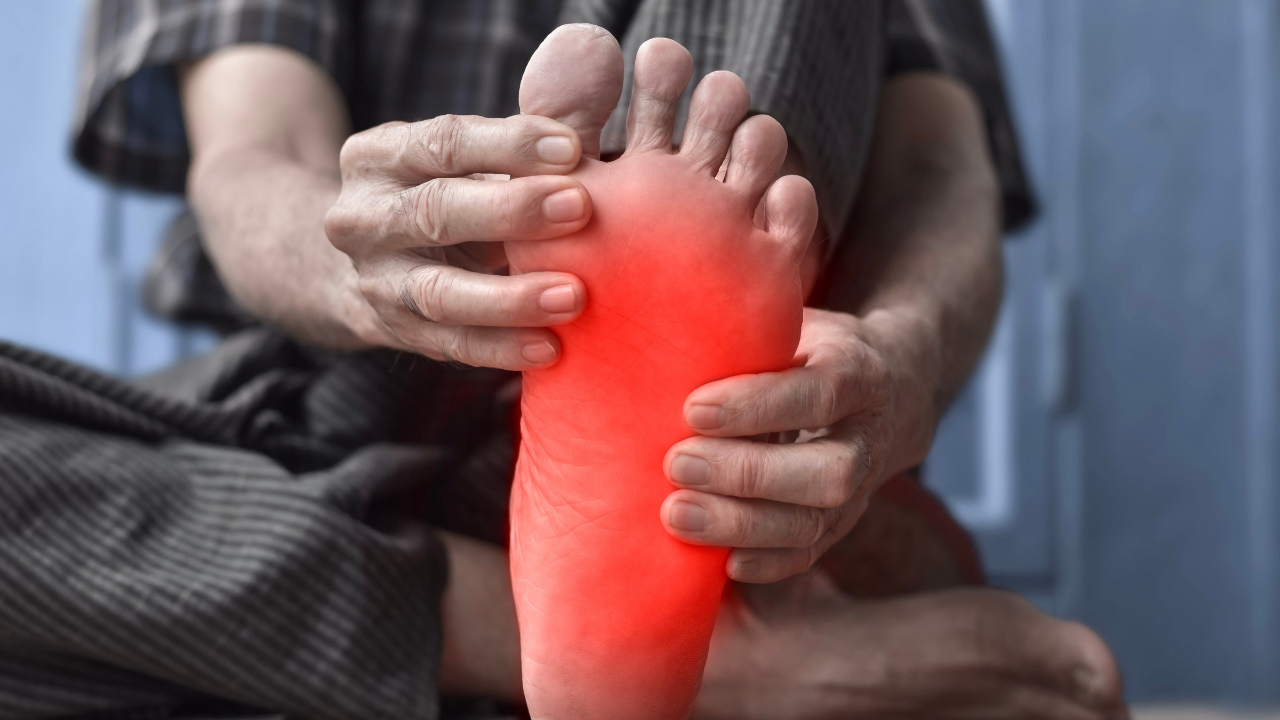Neuropathy affects millions of people worldwide, disrupting their daily lives with pain, numbness, or other nerve-related issues. Understanding what is neuropathy can help you recognize its symptoms early and take proactive steps to manage it effectively. This guide delves into the causes, symptoms, and management of neuropathy to provide you with a comprehensive understanding.
What is Neuropathy?
Neuropathy refers to damage or dysfunction in the peripheral nerves, which transmit signals between the brain, spinal cord, and the rest of your body. It can cause pain, weakness, and sensory changes, impacting your quality of life. Neuropathy is often linked to conditions like diabetes, infections, or physical trauma.
If you’re experiencing persistent nerve-related issues, learning what is neuropathy will enable you to seek timely medical intervention.
Types of Neuropathy
1. Peripheral Neuropathy
Peripheral neuropathy affects the nerves outside the brain and spinal cord. It typically causes symptoms like numbness, tingling, or burning pain in the hands and feet.
2. Autonomic Neuropathy
This type involves damage to autonomic nerves, which control involuntary bodily functions such as heart rate, digestion, and bladder control.
3. Proximal Neuropathy
Proximal neuropathy targets nerves in the thighs, hips, and buttocks, leading to pain and weakness in these areas.
4. Focal Neuropathy
Focal neuropathy affects a single nerve, often causing sudden pain or weakness in specific body parts, like the face or torso.
Common Causes of Neuropathy
1. Diabetes
Diabetic neuropathy is a prevalent form of nerve damage caused by prolonged high blood sugar levels. This condition underscores the importance of managing diabetes effectively.
2. Infections
Certain infections, including shingles, Lyme disease, and HIV, can cause neuropathy by damaging nerves.
3. Physical Trauma
Injuries from accidents or repetitive strain can compress or damage nerves, leading to neuropathy.
4. Nutritional Deficiencies
Deficiencies in essential vitamins like B12 can impair nerve health, resulting in neuropathy symptoms.
5. Alcohol Abuse
Chronic alcohol use can cause toxic effects on the nervous system, leading to alcoholic neuropathy.
Symptoms of Neuropathy
Neuropathy symptoms vary depending on the type and severity of nerve damage. Common symptoms include:
- Numbness or tingling in hands and feet
- Sharp, burning, or stabbing pain
- Muscle weakness
- Loss of coordination or balance
- Sensitivity to touch
How to Manage Neuropathy
1. Adopt a Balanced Diet
Maintaining a nutrient-rich diet supports nerve health. Foods high in omega-3 fatty acids, vitamins, and antioxidants can reduce inflammation and promote nerve repair. Understanding whether the Indian diet is protein deficient can help you address nutritional gaps.
2. Engage in Regular Exercise
Exercise improves blood flow and reduces inflammation, which helps manage neuropathy symptoms. Activities like swimming can be highly beneficial. Learn how many calories swimming burns to stay motivated.
3. Manage Blood Sugar Levels
For diabetic neuropathy, controlling blood sugar levels is crucial. Consistent monitoring and a diabetes-friendly diet can prevent further nerve damage.
4. Use Home Remedies
Home remedies can provide relief from neuropathy symptoms. For example:
- Warm compresses may reduce pain.
- Home remedies for dry lips highlight how simple solutions can ease minor discomforts.
5. Take Vitamin Supplements
Deficiencies in vitamins like B12 and D3 can worsen neuropathy. Supplementation, under a doctor’s guidance, supports nerve repair and overall health.
6. Avoid Alcohol
Limiting alcohol intake prevents further nerve damage and helps manage symptoms of neuropathy caused by alcohol abuse.
7. Consider Physical Therapy
Physical therapy strengthens muscles, improves coordination, and relieves pressure on affected nerves. Consult a specialist to design a program tailored to your needs.
Natural Remedies for Neuropathy
Several natural remedies can complement conventional treatments for neuropathy:
- Turmeric: Its anti-inflammatory properties can ease pain.
- Capsaicin Cream: Derived from chili peppers, it reduces pain signals in nerves.
- Essential Oils: Oils like lavender and peppermint can relieve pain and improve circulation.
Lifestyle Changes to Prevent Neuropathy
1. Stay Active
Regular physical activity, such as jogging or walking, supports nerve health. Monitor your average jogging speed to maintain consistency.
2. Manage Chronic Conditions
Conditions like diabetes or autoimmune diseases can worsen neuropathy. Work with your doctor to manage these issues effectively.
3. Hydrate and Eat Healthy
Hydration plays a significant role in maintaining overall nerve health. Similarly, avoiding excessive consumption of certain foods, like blueberries, prevents unnecessary strain on your body.
When to See a Specialist
If symptoms persist or worsen, consult a healthcare professional. Persistent symptoms like chronic pain, numbness, or loss of coordination may require intervention from a neurologist. Early diagnosis can prevent further nerve damage and improve your quality of life.
Myths About Neuropathy
1. Neuropathy Only Affects the Elderly
Neuropathy can affect individuals of any age, depending on the underlying cause.
2. It Has No Treatment
While nerve damage may not be reversible in some cases, symptoms can often be managed effectively through lifestyle changes and treatments.
3. Painkillers Are the Only Solution
Comprehensive management, including dietary changes, exercise, and physical therapy, offers better long-term outcomes than relying solely on painkillers.
The Importance of Early Intervention
Delaying treatment for neuropathy can lead to severe complications, such as permanent nerve damage or disability. If you suspect nerve damage, don’t ignore the symptoms. Start by understanding what is neuropathy and consulting a specialist for a thorough evaluation.
Conclusion
Neuropathy can impact your daily life in various ways, but understanding what is neuropathy and adopting the right management strategies can help you regain control. From dietary adjustments and exercise to medical interventions, a comprehensive approach can alleviate symptoms and enhance your quality of life.
If symptoms persist, seek help from a neurologist for a proper diagnosis and treatment plan. Prioritize your nerve health today for a better tomorrow.









